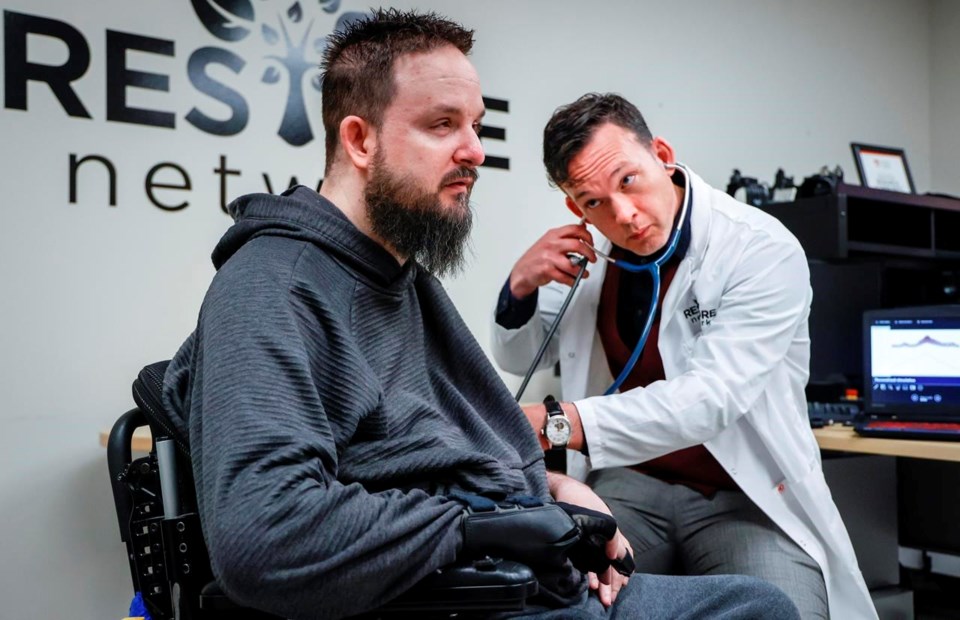CALGARY — Alberta Health Services and the University of Calgary are partnering to support people with spinal cord injuries, strokes and movement issues.
The Researching Strategies for Rehabilitation, or RESTORE, Network is to work with a specialized group of academics and experts to conduct clinical trials and test new therapies and technologies to improve the quality of life for those with neurological disorders.
The network is working to "ensure continuity of care and access to novel neuro-rehabilitation techniques for people of all ages," research manager Kelly Larkin-Kaiser said Tuesday.Â
"Our vision is to develop a centre where we can develop our own biotechnology, so that we can innovate further and use less off-the-shelf technology," she said.
The network is focused on three areas of rehabilitation study — spinal cord injuries, stroke and movement impairment — each with its dedicated team of researchers to conduct clinical studies or pilots. Â
Researchers are also looking into methods to stabilize blood pressure among people with spinal cord injuries in what the network says would be a first-ever trial in humans. Larkin-Kaiser said the researchers would implant epidural stimulators over the spinal cord to reawaken them after injury. Â Â
"When people generally think of somebody with a spinal cord injury, they tend to think spinal cord injuries are focused on moving again, like being able to walk again," she said. Â
"But the reality is that these folks have a lot of autonomic dysfunction … like managing your blood pressure, managing your bladder or managing your sleep." Â
The network is also working on other pilots, including a virtual-reality treadmill at the Foothills Medical Centre in Calgary, in partnership with AHS, for enhancing stroke recovery.
Another pilot includes children with mobility challenges at Alberta Children's Hospital in Calgary that helps them move around with a robotic-assisted walking device. Â
Larkin-Kaiser said both pilots are being expanded to include more participants.Â
"This is a powerful example of how collaboration between health-care providers, researchers and the community translates to real-world treatment that can dramatically improve the lives of many patients with neurological conditions," Dr. Mark Anselmo, medical director for AHS Calgary Zone, said in a statement.Â
Dr. Aaron Phillips, the network's director, said it would be "one of the key centres in the world for the development of new technology for rehabilitation."
He said that over the next five years, the network's vision is to "develop a fully operational engineering space for next-generation technology to be ideated, fabricated, validated and, finally, disseminated so that our clinical community can benefit from our new discoveries.”Â
This report by The Canadian Press was first published May 2, 2023.
— By Ritika Dubey in Edmonton.
___
This story was produced with the financial assistance of the Meta and Canadian Press News Fellowship.Â
The Canadian Press




